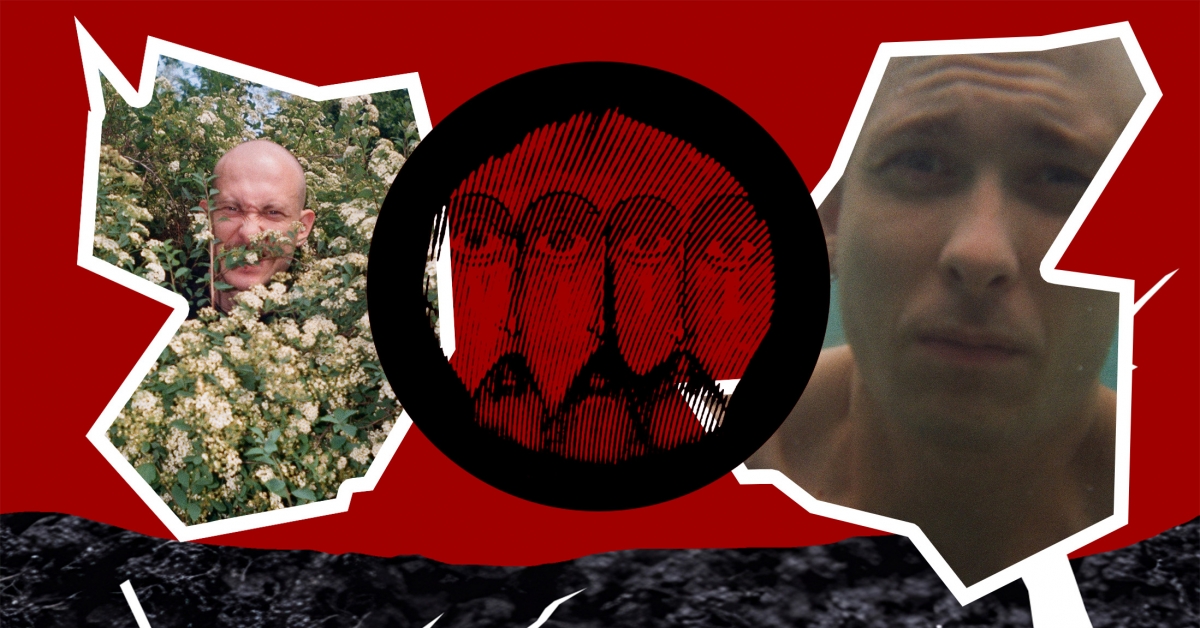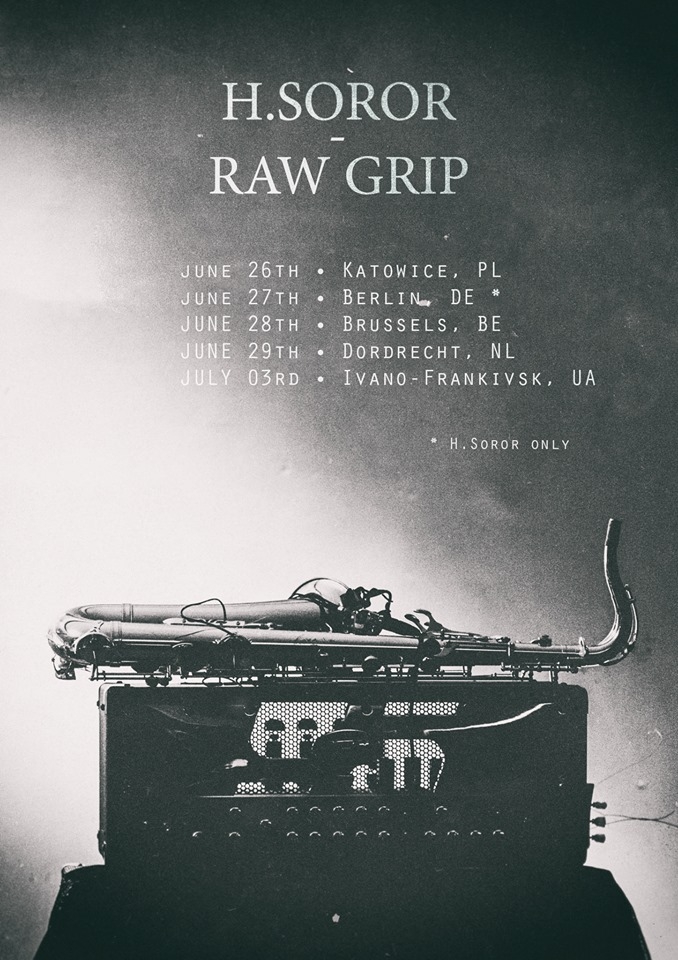Destroying the limits: authenticity and extreme music

Andrey Pechatkin, known as a member of the band Signals Feed The Void, whose music you wouldn’t call mediocre, made his debut on our site as the author of an article about the experimental scene of Novaya Kakhovka. Now Andrey made a selection of bands, the music of which is often not easy to understand, but it’s amazing. Of course, this is a somewhat subjective approach, but we have no reason to doubt the author’s good taste, so take this material not as a TOP or rating, but rather as an opportunity to remember whether to discover really complex, but also interesting, representatives of the Ukrainian underground.
***
If you look at the native heavy music, you can find a lot of good bands, and still, there is one "but". When I listen to something like a new wave, I want to hear pleasant harmonies and melodies that are structured into a song form. When looking for heavy underground bands, I want to hear something unusual and deviant: to feel a protest against the domination of cliches and standards.
Unfortunately, many of the native musicians, creating their own music, are guided by the fact that you have to make compromises in order to win the position of an ordinary listener. At best, the figures of the underground culture try to identify their creativity with individual foreign bands through their own love for these bands. As a result, we have dozens of domestic analogs of more or less well-known foreign bands. But what really distinctive heavy bands exist or existed on the territory of Ukraine?
Let's talk about the bands that did not get much popularity, but created masterpiece albums; about musicians who were not afraid to do something new, rather destroying than following the existing limits.
Хвилини Тисячі Мільйонів (Minutes of Thousands of Millions)
The same-name release of this band saw the light in the distant 2003. The most successful term characterizing the style of the two debuts Hvylyny Tysyachi Milyoniv songs is nu-metal but more difficult and evil than it was customary to play and listen to. Even then, one could feel the desire of musicians to create something unique.
It takes only a year, and Хвилини Тисячі Мільйонів makes a mad jump in the EP "Жада Поглине" ("Absorbed by Greed"). The sound of the four release songs goes deep into the experimental territories and completely loses the nu-metal component. We can hear something like Eleventh He Reaches London during the "The Good Fight for Harmony" period a year before getting out of a rougher form instead. Experimental, black, hardcore, indie, noise and sludge — these are the tags with which the musicians characterized their work. And indeed, elements of all these genres can be heard in the four songs of the release.
The lyrics of the band deserve special attention. Do not be lazy and go to bandcamp page and read.
But this is not the end of the band's experiments. The fistula that appears in the last song of the aforementioned EP becomes the leitmotif of the album "Глибини Над І Я" ("Depths Above and Me"), which was released in 2005. The eclecticism inherent in the second release is revealed even brighter: the music becomes more evil, cold and desperate, the fistula adds a folk atmosphere and some shaky hope for the best, but none of the songs promise anything good.
I could write for a long text about this, to be sure, underestimated and almost forgotten by contemporaries band, but better listen to everything yourself. Хвилини Тисячі Мільйонів — is really deviant music, which was created in defiance of everything.
Gravitsapa
Gravitsapa is another band that began with nu-metal and went through a very thorny path. In 2009, the band released its demo album "Вільне радіо Альбемута" ("Free Albemut's Radio"), which included 4 songs. Stylistically, it was math-rock that Sergey Kuryokhin would play: fast and atonal music, in which jazz harmonies periodically appear, mixed with elements of progressive 70s rock. Fans of canonical math-rock will say that this is not math-rock, connoisseurs of the progressive aforementioned epoch are also unlikely to appreciate the release, and jazzmen will not listen to it at all. But, if someone wants to broaden their horizons and move out of the zone of musical comfort, then "Вільне радіо Альбемута" is the ideal reason for this.
The video for the song "Fish" deserves special attention. It was released several years later.
"Вільне радіо Альбемута" was released under the name "Free Radio Taxipod" on HYSM? and Damage Limitation Records along with the second release "Vulgata" in 2013. The new work was ready earlier, but it was waiting in the wings due to difficulties with labels. Few people dared to issue such a bold release. But in the end, it happened.
The sound of "Vulgata" has become more eclectic, diverse and difficult thanks to complex rhythmic decisions and unusual structures for the first release of songs. Also, on the second release, you can hear the meditative-hypnotic parts that harmoniously fit into the structured chaos of progressive-math-rock guitar parts.
But the experimental degree of the first two releases was not enough. Therefore, bandleader Sasha Zhabokritsky decides to rethink his early work, resulting in the album "Demo - 2". In fact, this is a certain analog of Ephel Duath's "Pain Remixes The Known": the musician creates a new album, redoing existing records. Stylistically, "Demo - 2" is post-industrial, but based on the same rock and progressive, which can be heard on the first two mini-albums of the Gravitsapa band.
Further, another transformation occurs with the band: the collective enters a state of performative and improvisational. There is a rethinking of the academic avant-garde and its combination with the know-wave, industrial and other genres. Listen to what came of it:
Starchitect
Post-metal was popular in the Ukrainian underground. What is left of it today at the beginning of this decade? Almost nothing but Zoanthropy and Nug. What was interesting then? With a dozen fairly distinctive bands, among which stood out one. While all bands tried to play melodic music, using mostly standard clichés, Starchitect neglected "pleasant" chords and hooky melodies. The band played a raw and dissonant post-metal with more complex song structures than their colleagues on the stage. You can listen to the debut album "No" (2011) to get confirmation.
The post-metal wave subsided very quickly, and the band disappeared from the radar for almost half a decade, but, after a five-year pause, it recalled itself with two albums at once: "Results" (2016) and "Shift" (2016). Both releases are masterpieces. Firstly, this is the most difficult music that the native underground has spawned: long songs with complex structures, constant changes in size and pace, absolutely atypical rhythmic decisions — no one has ever dared to do that. Secondly, the music remains quite melodious in contrast to the same Gravіtsapa: Starchitect's new songs can even be hummed (but not always). So, the band maintains a clear balance between melody and complexity, which is quite rare even in international practice. It's still post-metal, but of a completely different sort.
Raw Grip
Another unique representative of heavy native music is Raw Grip. Bass, drums and vocals — that’s all the instruments in the band’s arsenal, but the minimalism in the composition encourages each of the participants to expand to one hundred percent.
As for the style of Raw Grip, this is math-punk — a mixture of math-rock, post-hardcore, punk, and screamo. The band has only one album "Imitation" (2017), the fast and broken music of which is replete with intense vocals, which maintains a tense atmosphere from the first to the last second. The release is heard in one breath, and this is not because the average length of songs does not exceed one and a half minutes, but solely due to its high cultural value.
Sectorial
There is a fairly strong black metal scene in Ukraine, whose representatives are known far beyond the borders of the country, but the most interesting and underestimated band is Sectorial with its latest album. "Vyr" is a complex combination of black, death and ethnic music. It seems that this is a fairly frequent combination at first glance, but Sectorial did the impossible: they rethought the existing scheme in such a way that their last album came out of the existing limits. Musicians not only successfully localized the popular combination of patterns, thanks to elements of Ukrainian folklore and Russian-language texts, but also proved everything to an extremum due to ultrahigh speeds. As a result, we have a very rough, but at the same time melodic album, which is full of love for nature and the world around.
Злам (Fracture)
An entire organization, worthy of a separate material, was formed around the Revet Sound studio but this is not about it now. But I want to say a few words about one of its representatives — Злам (Fracture) band.
Starting its formation back in 2007, seven years later, the band gave a landmark epochal album "Бачив, Як Вдихають Горе" ("Seen Inhale Grief"). Stylistically, this is a progressive metal in which you can hear a bunch of elements from the mathcore to the post-death metal. All this diversity is combined so harmoniously that there is no doubt about the genius of the work while listening.
An important component of creativity is also texts in Ukrainian (quite a rare phenomenon in such music), full of frank experiences and revelations. "Бачив, Як Вдихають Горе" — a very complex and large-scale work that deserves more.
Unfortunately, the fee for creating distinctive heavy music is oblivion. But it's very cool that there are people who are not scared. In spite of any circumstances, they continue to create music the way they see it, and not the way the average consumer wants to see it.
On the cover — frame from the clip of Gravitsapa









